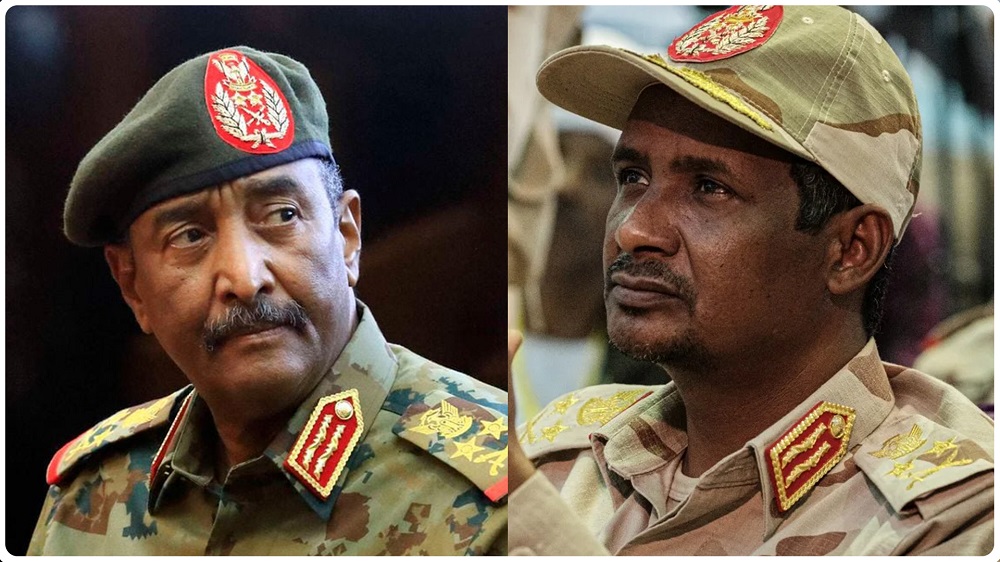UAE Accused of Fueling Sudan’s Civil War Through Gold and Militia Support
Sudan files lawsuit against the UAE at the International Court of Justice over support for RSF militias, as gold trade and alleged war crimes deepen regional tensions.

Watan-The United Arab Emirates has firmly positioned itself as Sudan’s greatest adversary, having been involved for years in supporting the Rapid Support Forces (RSF) militias and fueling the civil war that has raged in the country for nearly two years.
On March 5, Sudan filed a lawsuit against the UAE at the International Court of Justice, accusing it of violating its obligations under the Convention on the Prevention and Punishment of the Crime of Genocide due to its support for RSF militias involved in attacks in West Darfur state.
Earlier this month, Sudan also submitted an official complaint to the United Nations Security Council, calling for action to halt what it described as “UAE aggression” through its backing of the RSF.
This week, Sudan criticized the UAE’s planned participation in a European Union–organized conference in mid-April on the ongoing humanitarian crisis in Sudan, which aims to rally support for the UN’s relief plan to assist 20.9 million people.

Sudan Moves to Halt Gold Exports to UAE Amid War Accusations
Sudan’s Ministry of Foreign Affairs denounced Abu Dhabi’s scheduled attendance at the London conference due to its role in escalating the war. The ministry stated, “Had it not been for the UAE’s extensive and ongoing support for the militias (RSF), the war would not have erupted,” noting that Abu Dhabi initially believed the situation was just a swift military coup that would enable RSF commander Mohamed Hamdan Dagalo “Hemedti” to seize power.
In this context, the Sudanese government is moving to suspend gold exports to the UAE and search for alternative markets, according to Minister of Minerals Mohamed Bashir Abunamo.
The minister denied reports claiming Sudan had committed to supplying gold to the UAE for 20 years, clarifying that most exports were conducted through private companies, not binding government agreements.
He also revealed that the Ministry of Minerals building and the General Authority for Geological Research were completely destroyed by UAE-backed RSF forces, who also seized large quantities of gold and 15 tons of silver—further complicating Sudan’s already strained mining sector.
Gold trade in Sudan has surged amid the brutal war, with the UAE serving as the primary destination and top importer of Sudanese gold. According to Agence France-Presse, citing officials and NGOs, the profits from this trade have supported both sides of the war, particularly the RSF.
Last month, the Sudanese army-aligned government announced record gold production in 2024, despite the country’s economy and infrastructure being ravaged by war.
Sudanese economist and gold trade expert Abdel Azim Al-Amawi believes the growing demand for Sudan’s mineral wealth is “a major driver for prolonging the war, especially given how easily it can be accessed in the absence of state control.” He added that “military-linked companies have profited from gold even before the war broke out, and so have companies affiliated with the RSF.” Gold exports have risen significantly since the war began in April 2023.
Marc Ummel, a researcher with SwissAid—an organization tracking gold smuggling from African countries to the UAE—stated, “To understand the war in Sudan, we must follow the gold. And it leads us to the UAE.”
According to Sudanese officials, gold trade observers, and SwissAid data, most of Sudan’s gold production goes to the UAE—either through official channels, smuggling routes, or due to Emirati ownership of one of the largest gold mines in Sudan.

Sudan’s Gold Smuggling Tied to UAE as RSF Mines Operate at Full Capacity
While gold exports brought in $1.57 billion to the state treasury last year, according to the Sudanese Mineral Resources Company, the company’s director, Mohamed Taher, noted that “about half of Sudan’s gold production is smuggled across borders.” He made the remarks from Port Sudan, on the Red Sea, where the interim Sudanese government is based.
Roughly 2,000 kilometers to the southwest, near the borders with South Sudan and the Central African Republic, RSF-run gold mines are operating at full capacity.
Experts and mining sources say smuggling routes pass through Chad, South Sudan, and Egypt before reaching the UAE.
Officials say 90% of Sudan’s official gold exports go to the UAE, which remains Sudan’s top buyer. “But we’re trying to open new markets,” they said.
SwissAid’s data analysis revealed that in 2023, Chad’s estimated gold exports to the UAE exceeded twice its actual production capacity, indicating that most of the gold exported was not officially recorded and had been smuggled across the border.






